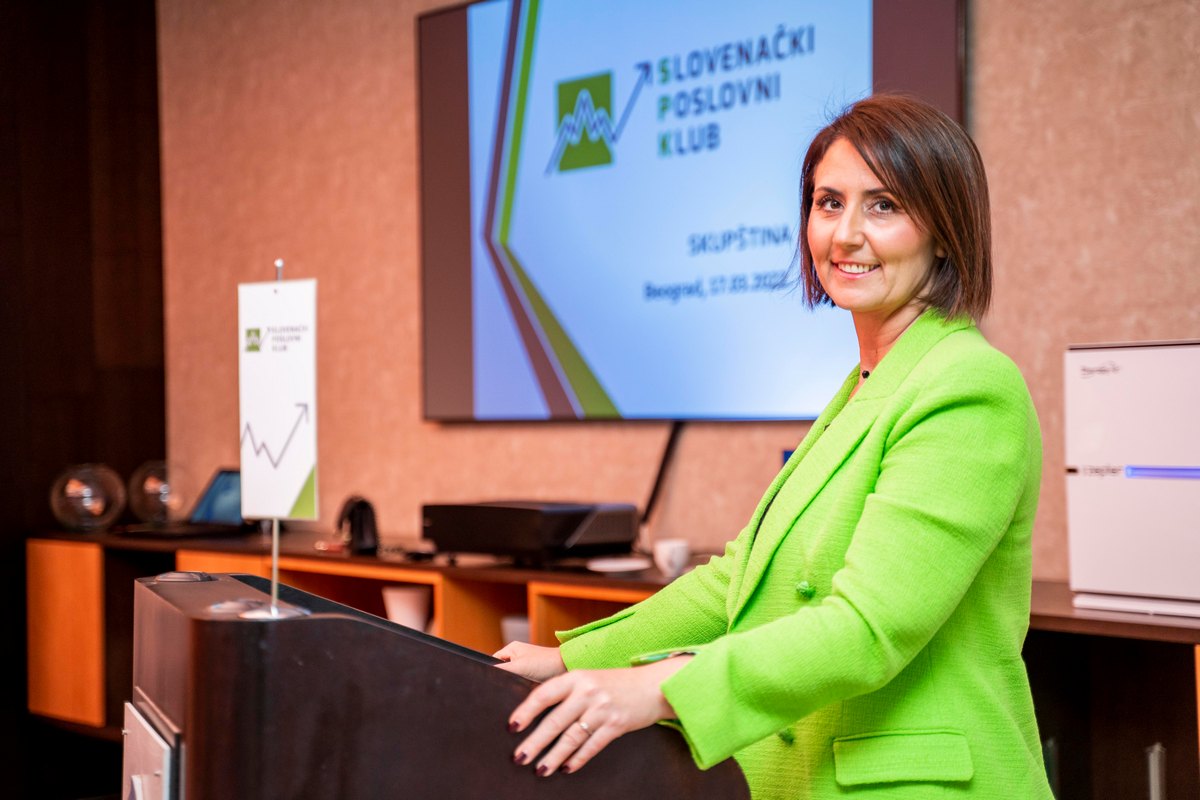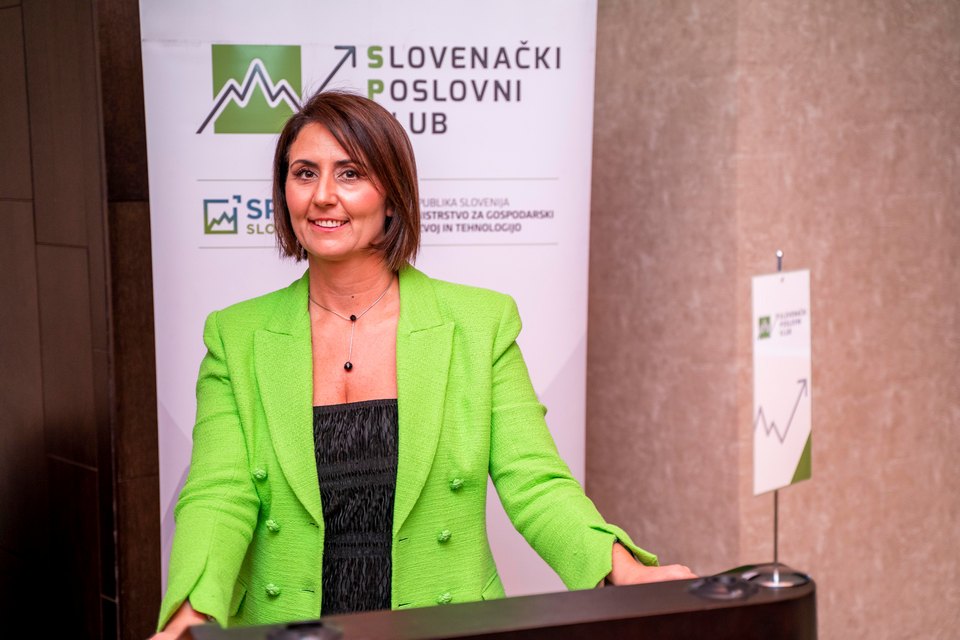The Slovenian Business Club has been constantly boosting its activities related to monitoring the needs of its members and providing support to them

The Slovenian Business Club has been operating in Serbia for almost twenty years and gathers one of the largest foreign business communities in our country. We talked with Danijela Fišakov, the Club’s president in Belgrade, about contemporary challenges for companies and cooperation between the two countries.
The Slovenian Business Club in Serbia is one of the most active business clubs in the country. You have organized numerous events and conferences and gathered a large number of business people. Does this indicate strong business ties between the Slovenian and Serbian economies?
The Slovenian Business Club has been active in Serbia for almost two decades, which are marked by an impeccable reputation and quality work. Thanks to its members (we have 145 this year), it has managed to establish high standards that send a clear message to everyone that the Club is a reliable organization that can be trusted. Being a reliable partner to its members and the two countries all these years is certainly a success worthy of respect. There is no doubt that active and strong cooperation between the two economies has significantly contributed to this success. Developed and well-branched-out business connections as well as extensive external trade, which is constantly growing, require the Slovenian Business Club to constantly boost its activities in monitoring the needs of its members and providing support to them.
How important is cooperation with state institutions in Serbia – the Government, ministries, and the Chamber of Commerce – for your work?
Cooperating with state institutions is of crucial importance for an organization of this type. Since its inception, the Slovenian Business Club has cooperated with Serbian state institutions and organizations to the greatest extent possible. In the beginning, this cooperation was of more modest scope and, on the one hand, was strongly voluntaristic. Over time, the activities of the Serbian government and supporting organizations became increasingly transparent, and the state bodies themselves became significantly more accessible to the business community. Today, the Slovenian Business Club and Serbian state institutions have a healthy partnership that is deepening and strengthening every day. We implement and organize many joint activities for the benefit of the business people from both countries.
What problems do Slovenian companies in Serbia face? Can SPK help them solve those problems?
Just as the fields of business activity of Slovenian companies in Serbia are diverse, so are the problems they face. Abundant life and economic activities come across a wide array of obstacles that need to be eliminated. In these processes, the members of the Slovenian Business Club very often turn to their organization for help, and we do everything in our power to help them overcome those obstacles. We are in daily contact with both Slovenian companies in Serbia and Serbian companies operating in the Slovenian market. Some of the problems these companies face are general. However, many are specific and require an individual and focused approach to each of them.
The EU doesn’t have a single complaint about the business climate in Serbia and the prevailing conditions in the Serbian market
The activity that makes us stand out is having one-on-one contacts, i.e. in our work with individual companies to find solutions for specific problems that our members face and which SPK can help them with overcoming, as well as providing support to companies in finding potential partners for cooperation. The Slovenian Business Club approaches every problem with dedication and full attention, so it gives me great pleasure to say that we are successful in solving the majority of these problems.
What is your view of the business climate in Serbia lately, especially taking into account the pandemic, the global crisis, and the slow EU accession negotiations?
History teaches us that, in this part of the world, not a single period in the past was perfect for a long period for small countries and nations. There have always been wars and crises, epidemics and pandemics, economic, political and even military pressures. The economy has somehow always managed to overcome and survive all those crises and situations. I want to believe that the same will happen now. It is an indisputable fact that both global and political circumstances in the immediate environment have led Serbia to situations where it has to make very serious and balanced political decisions. On the other hand, it is encouraging to see that the EU doesn’t have a single complaint about the business climate in Serbia and the prevailing conditions in the Serbian market.
Slovenian-Serbian relations, both economic and political, are traditionally good and are constantly developing and deepening
In which economic segments do Serbia and Slovenia cooperate the most? Which of the segments causes the greatest interest and what niche could soon become popular?
The volume of trade between the economies of Slovenia and Serbia has been showing a continuous and significant upward trend for many years. The official Slovenian statistical data show that, in 2021, the value of this trade amounted to almost 1.9 billion euros. In the first eight months of this year alone, it has already reached the amount of 1.4 billion euros, which is the highest value of commodity trade between the two countries in the last five to six years. This value could be much higher and more significant in the future because there are great opportunities for increasing it. Still, the sectors like information technology, agriculture, environmental protection and infrastructure are far from reaching their cooperative maximum.
What is your opinion about the Open Balkans Initiative? How can it contribute to the development of economic relations between Serbia and Slovenia?
Slovenian-Serbian relations, both economic and political, are traditionally good and are constantly developing and deepening. Slovenia is doing its best to contribute to and expedite Serbia’s accession to the EU. Given that the EU’s practical experience concerning the free flow of goods, people and capital speaks in favour of any common economic space, the Slovenian Business Club has welcomed the launch of the Open Balkans initiative from its very beginning. The Slovenian economy already cooperates a lot with the economies of individual Balkan countries, which are included in this Initiative, but its full implementation will contribute to the development of both existing and overall economic cooperation in this part of the world and the prosperity of the economies of each country that has joined the Initiative.
